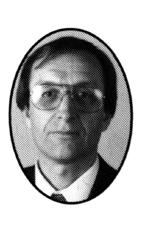Mr. Speaker, my question is directed to the Minister of Justice. Naturally, it will be brief.
The Minister just announced in his speech the creation of a national crime prevention council. As everyone knows, councils such as this are often made of up of experts who are slow to report, so much so that when they do finally get around to releasing their report, all one can do is comment on the findings.
My question is this: Who will be appointed to this high-profile council?
Does the minister intend to take into account in the appointment process certain new elements which may not have been considered in the case of past councils. I am referring here for example to appointing certain individuals who through their work are familiar with criminals, indeed with hardened criminals. While it is natural that the council would include people whom we have come to expect to serve on such bodies, people such as lawyers and professionals who provide services to individuals in the corrections field, maybe it should also be made up of people who work with criminals every day. I am thinking about correctional services officers who in the course of their day-to-day jobs deal with those who have committed crimes and are serving time.
I know from experience that those who work inside correctional facilities are somewhat bound by professional secrecy. Understandably it is quite natural for them not to disclose everything that goes on. Some of what goes on is not very pretty and there is no need for everyone to know the details. The people who work inside these institutions and see firsthand how people in need of assistance live are, we have to admit, often overlooked initially, when in fact they may be in the best position to make a contribution to this high-profile council and to propose more pragmatic solutions.
Therefore, I will repeat my question to the minister. Has he given any thought to the make-up of this body? Who will be appointed to serve on the council?

